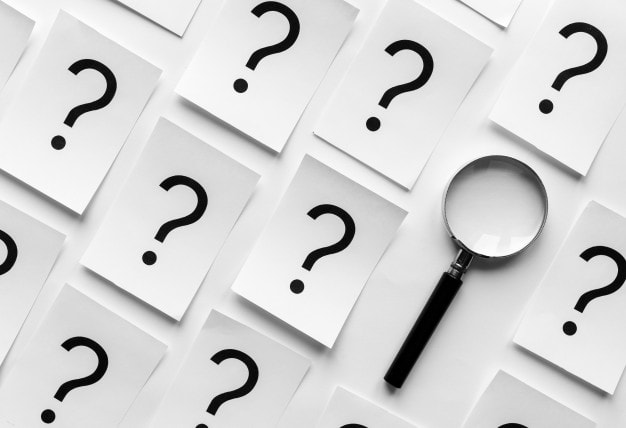Knowing the answers will help you in school, knowing how to question will help you in life – Warren Berger
The essential thing in life is to keep on questioning, as it is one of the best ways to find about the things you want to know. Curiosity leads to questioning and further down the lane to wisdom and knowledge.
Questioning is the ability to organize our thinking around what we don’t know – The Right Question Institute
What is questioning techniques, and are they essential in today’s society, is a common question in everybody’s mind. The thing to remember at this point is that it is a necessary tool for the learners to attain a better understanding as well as skills that will prove a blessing in the days to come.
Questioning in itself is a technique that is considered crucial and all-important in the growth and well being of an individual.
Table of Contents
Planning for better questioning techniques
Take the following steps to prepare for better questioning techniques
- Identify your intention or purpose for asking questions and link the questions to it
- Determine the levels of questions you want to ask
- Select the content and choose the material that you consider important
- Plan the questions that you want to use
- Make sure you have your arsenal of the key as well as subsidiary questions at hand
- Choose the questioning technique that will fit the situation
- Phrase the questions in a manner that makes it clear to the respondent
- Decide on the timing and order of questioning
- Analyze the given information to come up with an answer
Types of questioning techniques
The various types of questioning techniques are as follows
1. Open question
Open questions are an essential part of questioning techniques, and they deal in the broader discussion, explanations, and elaboration. These are framed in a manner of conversation between two people where questions help to describe the situation.
Open questions help in a better understanding of the topic under discussion as it allows endless questions and answers. It is useful in productive talks so that you can delve deep and extract more information.
When you are asking open questions, the person at the other end feels your interest, and this creates a strong bond. This method of questioning techniques is best for individuals or small groups, not large ones, as it will become challenging to extract information and give personal attention to everyone.
Examples of open questions are
- What happened in the class today?
- What did you do in your office today?
- Who was present at the time of the incident?
- Explain why it happened?
- What are your thoughts about the incident?
- Why did it happen?
2. Closed questions
Closed questions are quick and easy to answer because they deal in short and often one-word answers. These are often yes, or no answers asked for affirmations, agreements, disagreements, and understanding concepts.
These are not part of a conversation as asking a close question can put an end to it. Closed questions are easy to compare during statistical analysis.
The limitation of this questioning technique is that it does not allow the respondent to express himself or put forth his views, nor does it facilitate a better understanding between the people involved in the question and answers. Examples of closed questions are
- Do you like hard drinks?
- Do you like soft drinks?
- Did you drive to the office today?
- Are you happy in your office?
- Where do you live?
3. Rhetorical questions
Rhetorical questions are used to engage the audiences. It encourages people to think out of the box and come up with innovative ideas. This type of questioning technique is not looking for answers.
These are statements that are phrased as questions to engage the other party and draw him into agreeing with you. Rhetorical questions make the conversation exciting and engaging and are used to persuade people to their way of thinking. Examples of rhetorical questions are-
- Isn’t it nice working in this office?
- Aren’t all the team members cooperative?
- Isn’t this a perfect fit?
4. Leading questions
Leading questions are also known as reflective questions because of their nature. Here an environment is created by leading the respondent towards a specific route. It also encourages people to agree with you and say yes.
This type of questioning technique is useful for closing a deal, building positive rapport, and directing the conversation towards an outcome that you desire. Sometimes leading questions are also used for manipulating situations to your advantage.
- Do you have any issues in your workplace?
- Do you enjoy working with your colleagues?
- Did anyone say anything to you?
- Did anyone misbehave with you?
5. Probing questions
As the name suggests probing questions are used to probe and extract information. It is looking for elaborate answers to clear all the related doubts. This type of questioning technique is most useful for encouraging others to open up and provide more information.
It involves a series of questions that encourage others to talk and give a full picture for better understanding. Examples of probing questions are
- When do you need this information?
- What is this information needed for?
- Where will you use this information?
- Who requires this information and details?
6. Funnel questions
Funnel questions are called by this unique name because of the type of questioning involved. A funnel is full at the mouth and gradually narrows down to the bottom, and so is the concept in this type of questioning techniques.
The person starts with lots of general questions about a specific topic and, with time, narrows it down to one point to arrive at the result. The funnel type of questioning techniques is generally used by people interested in research and investigation, for example, by a policeman investigating a case or a scientist researching his paper.
They ask funnel questions to collect useful information that is later arrowed down to an obvious conclusion. Examples of funnel questions are
- When did you last see him?
- What was he wearing?
- Was he disturbed?
- What did you talk about?
- Did he say anything specific to you?
7. Clarifying questions
As the name suggests clarifying questions are used to verify specific information. In this type of questioning techniques, things are finalized at the end to confirm the matter that was under discussion.
Examples of clarifying questions are
- Am I right in believing that you all broke the hostel curfew?
- Just to confirm that you have asked for an unlimited package for the internet?
8. Loaded questions
The loaded questions are often closed questions that seem pretty straightforward. There is a twist in loaded question as it includes an assumption about the other person.
This type of questioning technique is considered tricky. It is used mainly by journalists and lawyers who want to trick the other person in giving answers that they usually would not provide.
Loaded questions are considered fact finders as they are useful in discovering facts that anyone would be reluctant to share. Examples of loaded questions are-
- Have you stopped overeating?
- Have you stopped cheating during an examination?
9. Recall and process questions
The recall questioning technique is used when you want the respondent to remember a particular fact. For instance, a teacher asks the student what 5 multiplied by 5, and the student will have to recall and answer 25.
Process questions, on the other hand, encourage the respondent to recall as well as add their opinion and then answer. It tries to test their understanding and knowledge about a specific subject.
The recall and process questions are most useful in developing critical thinking in individuals. They are used during the in-depth evaluation of a topic during discussions, interviews, and tests. Examples of Recall and process questions are-
- What is your account password?
- Why do you consider yourself the right person for the job?
Purpose of questioning techniques
The purpose of questioning techniques is as follows-
- Engage, involve and challenge
- Boost independent learning
- Clear doubts and gain clarity
- Share ideas and start conversations. It also helps to take control of the conversation
- Express interest in others and build rapport
- Promote reasoning power
- Encourage the habit of problem-solving
- Promote thinking on important issues and key concepts
- Helps to evaluate and boost analytical thinking
- Develop an interest
- Recall existing knowledge
- Develop a better understanding of a subject
- Check on the knowledge gained at earlier instances
- Know about the opinions and beliefs of other people
- Obtain information and search for viable solutions
- Explore attitudes and feelings
Strategies for effective questioning techniques
The strategies of questioning techniques in a classroom are-
- Do not ask questions only to those students who are raising their hands and volunteering to answer the question. Make it a no-hands policy where the students will not raise hands instead the teacher will ask anyone randomly
- Introduce a wait time if you are looking for an effective questioning technique in the classroom. The wait time gives the student time to think, process, and rehearse the answer before speaking. This action will bring considerable improvement in the student’s interaction
- The teacher should plan the lesson so that the questions are well prepared. It will keep the experience on track and achieve desired outcomes
- Use various types of questions during the question and answer session as it will give the students a chance to deal with every situation admirably.
- It is essential to encourage the students so that they can ask a question in a classroom. This will foster a better understanding of the lesson
- Prepare the follow-up questions so that you can use it if required
- Do not dismiss any answers as it will discourage students from participating in such activities
Advantages
The advantages of questioning techniques in teaching are-
- The question-answer method helps develop critical thinking and analytical skills in children from an early age
- The questioning techniques develop the power of expression amongst students
- It helps to analyze the mindset of students and determine whether they can cope in their surroundings
- It is also used to reflect on the behavior and attitude of a student
- The questioning techniques help children to think aloud and have active discussions
- It helps the learners to clear their doubts
- Motivates them to develop various interests
- Empowers students so that they become confident
- Helps teachers to check the understanding level of a student
Disadvantages
The disadvantages of questioning techniques in teaching are-
- It is a very time-consuming process that takes a lot of effort
- A teacher will have to be skilled to use this method as an advantage
- It can disturb the atmosphere in the class.
Conclusion
Questioning techniques are referred to as learning skills that encourage asking questions and knowing the right answers. It is used by everyone in all the spheres of life, for instance, at home, at work, at social gatherings, at meetings, amongst friends, family, colleagues, and even in the presence of strangers.
Proper questioning techniques lead to better interpersonal skills and successful communication.
Looking to enhance your questioning techniques?
The Question Formulation Technique (QFT) developed by the Right Question Institute is a powerful tool to improve your questioning skills. This method encourages individuals to generate, refine, and reflect on their own questions, leading to deeper understanding and engagement. The QFT has been widely adopted by educators to promote critical thinking and curiosity among learners (Right Question Institute, 2020).
Incorporating Bloom’s Taxonomy into your approach can further elevate your questioning techniques. By structuring questions that target higher-order thinking skills—such as analysis, evaluation, and creation—you foster deeper learning and problem-solving abilities. Bloom’s Taxonomy has been a foundational framework in education since its development in 1956 and continues to guide effective teaching strategies (Bloom, 1956).
Liked this post? Check out the complete series on Careers



This is a good and Informative post.